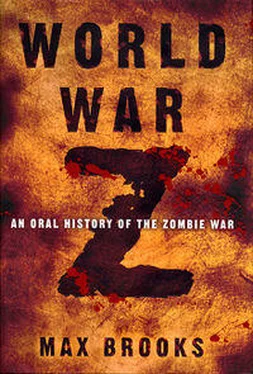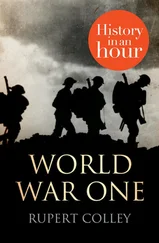So what happened? About a month before our troubles started, before the first outbreaks were reported in Pusan, the North suddenly, and inexplicably, severed all diplomatic relations. We weren’t told why the rail line, the only overland link between our two sides, was suddenly closed, or why some of our citizens who’d been waiting decades to see long lost relatives in the North had their dreams abruptly shattered by a rubber stamp. No explanation of any kind was given. All we got was their standard “matter of state security” brush-off.
Unlike many others, I wasn’t convinced that this was a prelude to war. Whenever the North had threatened violence, they always rang the same bells. No satellite data, ours or the Americans, showed any hostile intent. There were no troop movements, no aircraft fueling, no ship or submarine deployment. If anything, our forces along the Demilitarized Zone began noticing their opposite numbers disappearing. We knew them all, the border troops. We’d photographed each one over the years, given them nicknames like Snake Eyes or Bulldog, even compiled dossiers on their supposed ages, backgrounds, and personal lives. Now they were gone, vanished behind shielded trenches and dugouts.
Our seismic indicators were similarly silent. If the North had begun tunneling operations or even massed vehicles on the other side of “Z,” we would have heard it like the National Opera Company.
Panmunjom is the only area along the DMZ where opposing sides can meet for face-to-face negotiations. We share joint custody of the conference rooms, and our troops posture for each other over several meters of open courtyard. The guards were changed on a rotating basis. One night, as the North Korean detachment marched into their barracks, no replacement unit marched out. The doors were shut. The lights were extinguished. And we never saw them again.
We also saw a complete halt to human intelligence infiltration. Spies from the North were almost as regular and predictable as the seasons. Most of the time they were easy to spot, wearing out-of-date clothes or asking the price of goods that they should have already known. We used to pick them up all the time, but since the outbreaks began, their numbers had dwindled to zero.
What about your spies in the North?
Vanished, all of them, right about the same time all our electronic surveillance assets went dark. I don’t mean there was no disturbing radio traffic, I mean there was no traffic at all. One by one, all the civilian and military channels began shutting down. Satellite images showed fewer farmers in their fields, less foot traffic in city streets, even fewer “volunteer” laborers on many public works projects, which is something that has never happened before. Before we knew it, there wasn’t a living soul left from the Yalu to the DMZ. From a purely intelligence standpoint, it appeared as if the entire country, every man, woman, and child in North Korea, had simply vanished.
This mystery only stoked our growing anxiety, given what we had to deal with at home. By now there were outbreaks in Seoul, P’ohang, Tae-jon. There was the evacuation of Mokpo, the isolation of Kangnung, and, of course, our version of Yonkers at Inchon, and all of it compounded by the need to keep at least half our active divisions along our northern border. Too many in the Ministry of National Defense were convinced that the Pyongyang was just aching for war, waiting eagerly for our darkest moment to come thundering across the 38th Parallel. We in the intelligence community couldn’t disagree more. We kept telling them that if they were waiting for our darkest hour, then that hour had most certainly arrived.
Tae Han Min’guk was on the brink of national collapse. Plans were being secretly drafted for a Japanese-style resettlement. Covert teams were already scouting locations in Kamchatka. If the Chang Doctrine hadn’t worked… if just a few more units had broken, if a few more safe zones had collapsed…
Maybe we owe our survival to the North, or at least to the fear of it. My generation never really saw the North as a threat. I’m speaking of the civilians, you understand, those of my age who saw them as a backward, starving, failed nation. My generation had grown up their entire lives in peace and prosperity. The only thing they feared was a German-style reunification that would bring millions of homeless ex-communists looking for a handout.
That wasn’t the case with those who came before us … our parents and grandparents… those who lived with the very real specter of invasion hanging over them, the knowledge that at any moment the alarms might sound, the lights might dim, and the bankers, schoolteachers, and taxi drivers might be called to pick up arms and fight to defend their homeland. Their hearts and minds were ever vigilant, and in the end, it was them, not us, who rallied the national spirit.
I’m still pushing for an expedition to the North. I’m still blocked at every turn. There’s too much work to do, they tell me. The country is still in shambles. We also have our international commitments, most importantly the repatriation of our refugees to Kyushu.… [Snorts.] Those Japs are gonna owe us big-time.
I’m not asking for a recon in force. Just give me one helicopter, one fishing boat; just open the gates at Panmunjom and let me walk through on foot. What if you trigger some booby trap? they counter. What if it’s nuclear? What if you open the door to some underground city and twenty-three million zombies come spewing out? Their arguments aren’t without merit. We know the DMZ is heavily mined. Last month a cargo plane nearing their airspace was fired on by a surface-to-air missile. The launcher was an automated model, the type they’d designed as a revenge weapon in case the population had already been obliterated.
Conventional wisdom is that they must have evacuated to their subterranean complexes. If that is true, then our estimates of the size and depth of those complexes were grossly inaccurate. Maybe the entire population is underground, tooling away on endless war projects, while their “Great Leader” continues to anesthetize himself with Western liquor and American pornography. Do they even know the war is over? Have their leaders lied to them, again, and told them that the world as they know it has ceased to be? Maybe the rise of the dead was a “good” thing in their eyes, an excuse to tighten the yoke even further in a society built on blind subjugation. The Great Leader always wanted to be a living God, and now, as master not only of the food his people eat, the air they breathe, but the very light of their artificial suns, maybe his twisted fantasy has finally become a reality. Maybe that was the original plan, but something went disastrously wrong. Look what happened to the “mole city” underneath Paris. What if that occurred in the North on a national level?Maybe those caverns are teeming with twenty-three million zombies, emaciated automatons howling in the darkness and just waiting to be unleashed.
[The old photo of Kondo Tatsumi shows a skinny, acne-laced teenager with dull led eyes and bleached blond highlights streaking his unkempt hair. The man I am speaking to has no hair at all. Clean-shaven, tanned and toned, his clear, sharp gaze never leaves mine. Although his manner is cordial and his mood light, this warrior monk retains the composure of a predatory animal at rest.]
I was an “otaku.” I know that term has come to mean a great many things to a great many people, but for me it simply meant “outsider.” I know Americans, especially young ones, must feel trapped by societal pressure. All humans do. However, if I understand your culture correctly, individualism is something to be encouraged. You revere the “rebel,” the “rogue,” those who stand proudly apart from the masses. For you, individuality is a badge of honor. For us, it is a ribbon of shame. We lived, particularly before the war, in a complex and seemingly infinite labyrinth of external judgments. Your appearance, your speech, everything from the career you held to the way you sneezed had to be planned and orchestrated to follow rigid Confucian doctrine. Some either have the strength, or lack thereof, to accept this doctrine. Others, like myself, chose exile in a better world. That world was cyber space, and it was tailor-made for Japanese otaku.
Читать дальше












